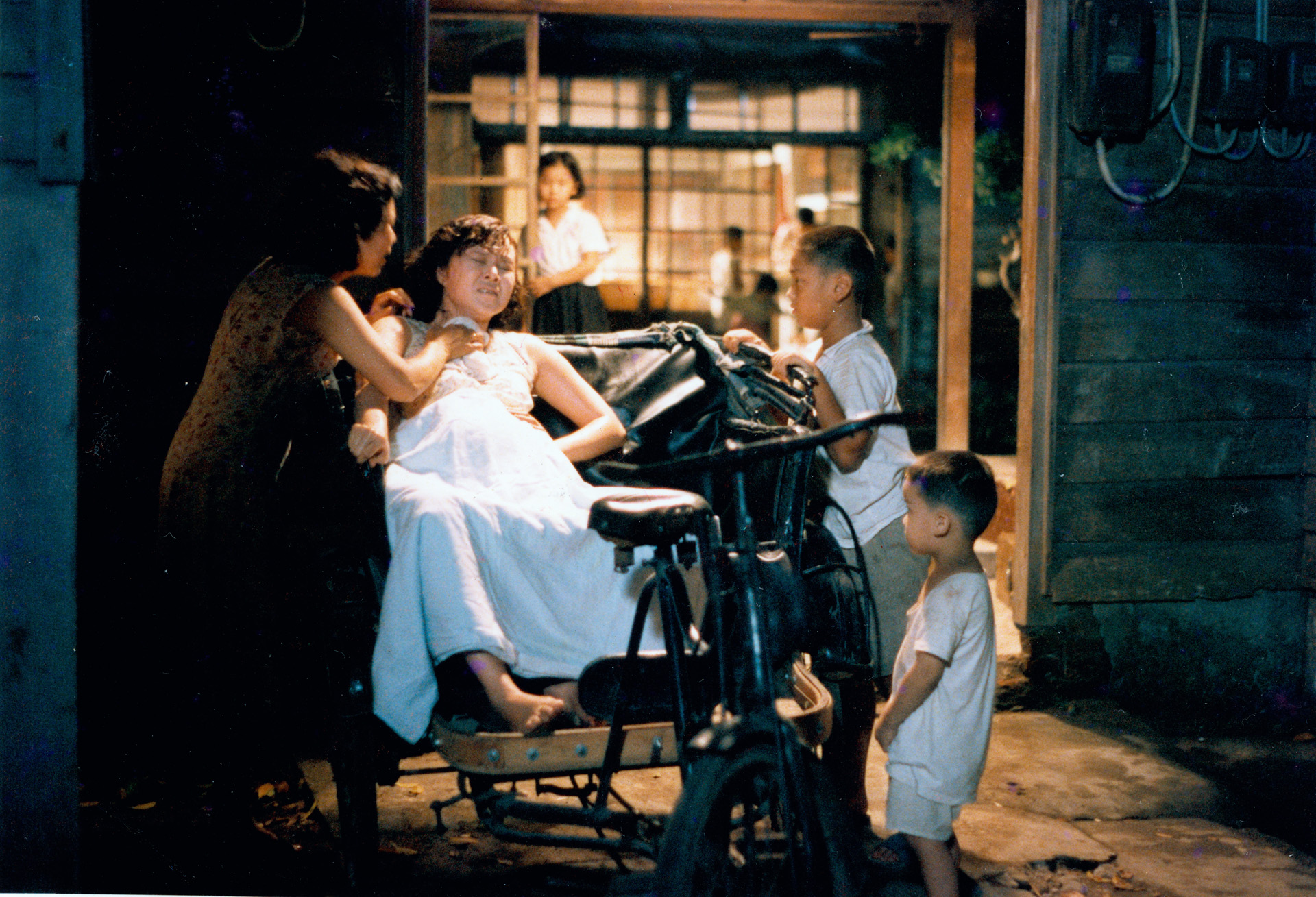Although Yi Chang may have spent much of his working career in the shadow of other Taiwanese directorial greats such as Hsiao-Hsien Hou and Edward Yang, 1985’s Kuei-Mei, a Woman outstripped his peers by scooping four Golden Horse awards that year. In it, we are treated to a lifelong portrait of the titular female as she attempts to drag her family through life despite poverty, prejudice and personal problems.
We first meet Kuei-Mei (Loretta Yang) as a blushing young woman being presented to the man who will soon become her husband. She shyly confesses that she was promised to a soldier on mainland China before fleeing to Taiwan, and as such is no longer a virgin. This admission reveals the integrity and complexity of her character, which is juxtaposed against the baggage that her husband carries, too. With three children from a previous marriage, he is also deeply proud but crippled by a gambling addiction. This latter vice, alongside his proclivity for idleness and deceit, means that it will fall to Kuei-Mei to become the principal breadwinner and decision-maker for her household.
Those decisions soon prove to be ones which threaten to tear her family apart. With her husband dismissed from his employ as a waiter for gambling on the job and up to his ears in debt, Kuei-Mei makes the impossible choice to up sticks and move to Japan – but with only two of their five children in tow. The remaining three are left in the care of her cousin as Kuei-Mei seeks to save money and provide a better life for all involved. Despite a hostile working environment and a difficult relationship with her husband, Kuei-Mei succeeds in saving enough capital to return to Taipei and launch their own restaurant.
Just as things are beginning to look up for the family, disaster strikes once more. As her husband falls back into old habits (both known and unknown ones), her daughter falls pregnant at just 15 years old. Almost immediately after steadying the familial ship, another Whack-a-Mole iceberg pops up to knock them off course. Despite these setbacks, Kuei-Mei stiffens her upper lip and struggles through the tribulations being thrown at her, finally emerging into an old age which should be characterised by peace and comfort but is instead riddled with cancer and what-ifs about her past.
The original title of the film (Wo zhe yang guo le yi sheng) translates roughly as “I lived a life just like that” and carries with it a tinge of remorse over missed opportunities and wrong decisions, a point which is hammered home in the film’s final scenes. Throughout it all, Yang is excellent as Kuei-Mei, earning the second of her Best Leading Actress awards in as many years for a thoughtful and empathetic portrayal of a principled and capable young woman doing her best in difficult circumstances. The make-up and cosmetics team also do an admirable job of depicting Chang as Kuei-Mei throughout the years, from the fresh flush of her youth to the grey-haired and misty-eyed serenity of her dotage.
As a character portrait of a woman dealing with the everyday pressures of a difficult life, Kuei-Mei, a Woman is by turns sweet, exhausting and overarchingly depressing, which can detract from the viewing experience slightly. Indeed, the more pleasant parts of Kuei-Mei’s life (of which there surely were some) are glossed over almost entirely, with her betrayals, defeats and disappointments pored over in painstaking detail. Perhaps that’s an apt metaphor for how the human psyche works: as creatures, we’re wont to forget the compliments and agonise over the insults, when it should really be the other way around. Such is life, in general – and such is Kuei-Mei’s life, in particular.
Part of Taiwan Film Festival 2020
